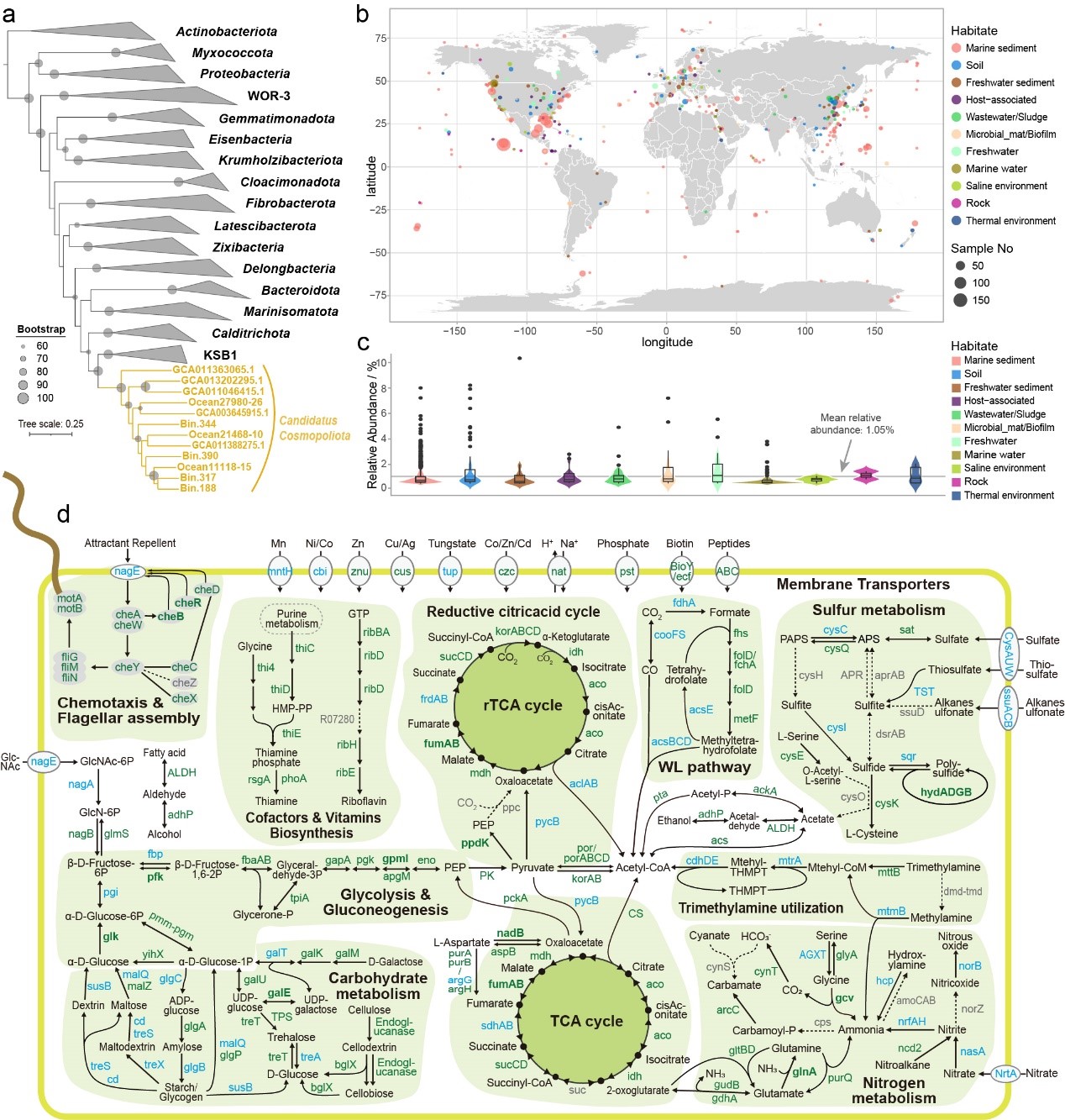Recently, Professor Li Meng and his research team in Institute of Advanced Studies at Shenzhen University published a new research paper titled "Long-Read Assembled Metagenomic Approaches Improve Our Understanding on Metabolic Potentials of Microbial Community in Mangrove Sediments" in the journal "Microbiome". They utilized next-generation metagenomic analysis techniques to investigate the metabolic potentials of microbial communities in mangrove sediment. The study discovered a new bacterial phylum and unveiled the metabolic characteristics. Professor Li Meng is the corresponding author, and Dr. Zhang Zhi-Feng, a postdoctoral fellow is the first author.
Microorganisms play a crucial role in energy flow and element biogeochemical cycling in mangrove wetlands, while the overall metabolic characteristics and ecological functions of microbial communities in mangrove wetlands remain unclear. In this study, a hybrid-assembled metagenomic approach of Illumina and PacBio data was employed to investigate in-depth the microbial taxa and metabolic networks in the Futian mangrove wetland of Shenzhen city. The study yielded a significant number of high-quality microbial genomes with high completeness and connectivity. Metabolic analysis revealed that prokaryotes played a key role in the nitrogen and sulfur cycles in the mangrove wetland, exhibiting diverse abilities in organic compound degradation, fermentation, and autotrophic carbon fixation. Fungi demonstrated diverse capabilities in the degradation of carbohydrates and peptides and participated in carbon, nitrogen, and sulfur cycling. Based on phylogenetic and genomic analyses, a novel bacterial phylum was proposed and namedCandidatusCosmopoliota (Fig.1). This bacterial group is globally distributed and possesses diverse lifestyles, utilizing various organic compounds with abilities for anaerobic fermentation and carbon fixation. The study not only showcased the potential application of third-generation sequencing in metagenomic analysis, but also expanded the understanding of the metabolic potentials and ecological functions of different microbial taxa in mangrove wetlands
This study was supported by the National Natural Science Foundation of China, the Education Department of Guangdong Province, the Shenzhen Municipal Science and Technology Innovation Commission and Shenzhen University 2035 Program for Excellent Research. The original article can be found at: https://microbiomejournal.biomedcentral.com/articles/10.1186/s40168-023-01630-x.

Fig. 1 Phylogenetic relationship, global distribution, and metabolic network of the new bacterial phylumCandidatusCosmopoliota.


